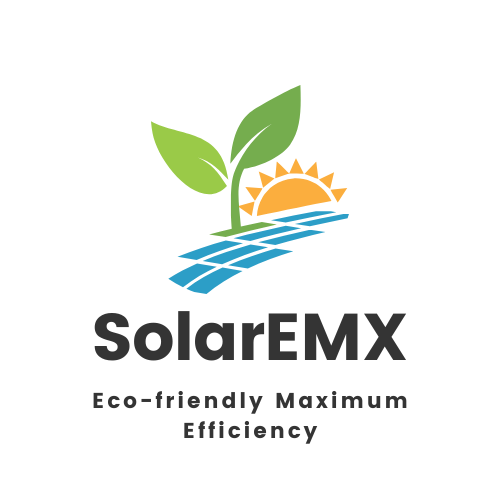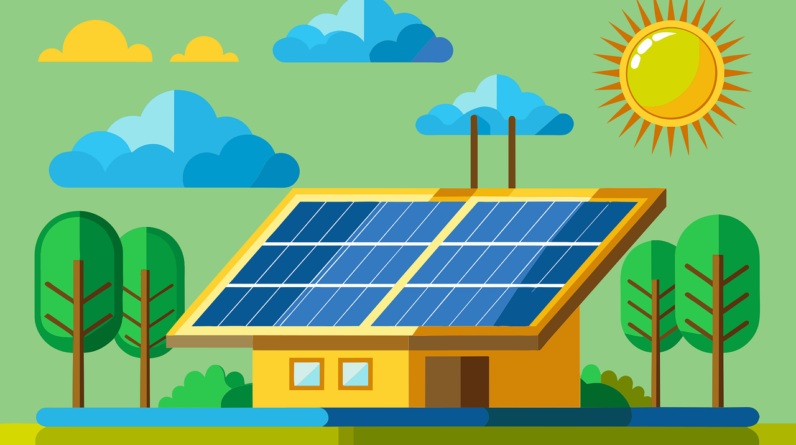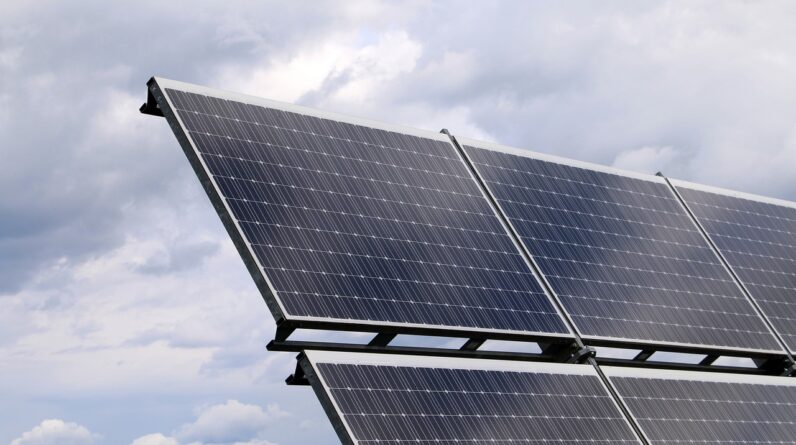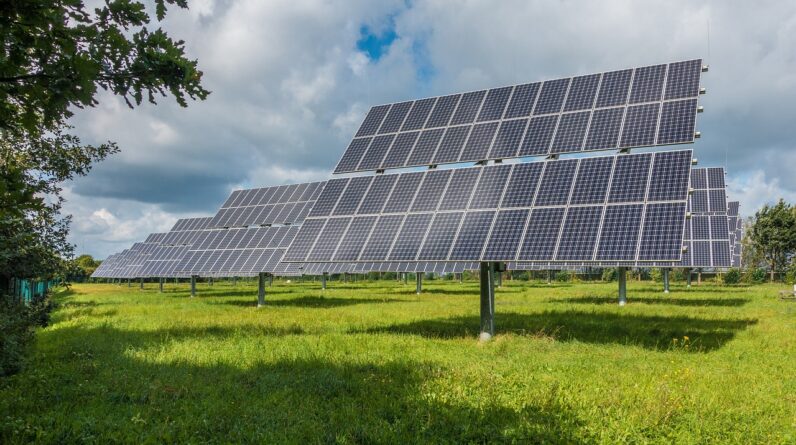
Learn about solar panel warranties—types, importance, and tips for ensuring you’re covered. Protect your investment and enjoy solar energy worry-free!
Have you ever wondered what happens if your solar panels don’t work as expected?
Understanding Solar Panel Warranties
When you make the shift to solar energy, one of the most crucial aspects to consider is the warranty that comes with the solar panels. A warranty provides you with a safety net, ensuring that you have support in case your panels don’t perform as promised.
Solar panel warranties can be a bit tricky to navigate, but with the right knowledge, you can ensure you’re adequately protected.

Types of Warranties
Let’s start by breaking down the different types of warranties you’ll encounter when considering solar panels. This knowledge will empower you to make informed decisions.
Product Warranty
This warranty typically covers any defects in materials or workmanship. If your panels malfunction due to manufacturing issues, this warranty protects you. Most manufacturers offer a product warranty that lasts anywhere from 10 to 25 years.
Here’s a quick summary of product warranty features:
| Feature | Details |
|---|---|
| Duration | 10 to 25 years |
| Coverage | Defects in materials or workmanship |
| Claims Process | Manufacturer’s customer service |
Performance Warranty
The performance warranty is essential for understanding how your solar panels will perform over time. It typically guarantees that your solar panels will produce a certain percentage of their rated capacity for a specific number of years.
For example, a common performance warranty might state that your panels will produce at least 80% of their rated output after 25 years.
Here’s a brief breakdown:
| Feature | Details |
|---|---|
| Duration | Typically 25 years |
| Coverage | Performance degradation over time |
| Claims Process | May require testing and documentation |
Importance of Warranties
Why should you care about solar panel warranties? Here are some key points to consider.
-
Financial Protection: A solid warranty can save you money if something goes wrong. Repairing or replacing solar panels can be expensive, and a warranty helps mitigate those costs.
-
Peace of Mind: Knowing you have protection against defects and performance issues gives you confidence in your investment. You can enjoy the benefits of solar energy without constant worry.
-
Resale Value: If you decide to sell your home, having warranties can add value. Potential buyers may find the presence of active warranties appealing.
What to Look For in a Warranty
As you’re evaluating different solar panel options, it’s essential to know what you should be looking for in a warranty.
Duration of Coverage
Not all warranties are created equal. A longer warranty often indicates that the manufacturer has confidence in their product. Look for warranties that offer at least 25 years of performance coverage and 10 years for product coverage.
Transferability
If you plan to sell your home, a transferable warranty can be a significant selling point. Check if the warranty allows for the transfer of coverage to a new owner. Many reputable manufacturers offer this feature, which adds value and peace of mind for future homeowners.
Claims Process
It’s important to understand how you can file a claim if something goes wrong. Reliable manufacturers will have a straightforward and transparent claims process in place. Research the process and read reviews to gauge how responsive and helpful the manufacturer is when customers need assistance.
Common Misconceptions About Solar Panel Warranties
While researching solar panel warranties, you might come across some common misconceptions. Let’s clarify a few of them.
Solar Panels Last Forever
One persistent myth is that solar panels will last indefinitely. While many high-quality panels can function efficiently for 25 years or more, they don’t last forever. The warranty helps you understand the expected lifespan and performance degradation over time.
All Warranties Are the Same
Not all warranties are equal. Some manufacturers have more robust warranties than others. Always thoroughly read and compare the warranty terms before making a decision. A lower quality warranty might not provide the protection you need.
Warranty Claims Are Easily Approved
It’s a common belief that filing a warranty claim will be a seamless process. However, the reality can vary. Ensure you are aware of the necessary steps to file a claim and understand your manufacturer’s reputation regarding customer service.
What to Do If a Problem Arises
So, what should you do if you encounter problems with your solar panels?
Step 1: Document the Issue
Start by documenting any problems thoroughly. Take pictures, note any irregular sounds, and record any dips in performance. This evidence will be crucial when filing a claim.
Step 2: Review Your Warranty
Carefully read through your warranty to understand what is covered. This will help you know the options available and prepare you for the next steps.
Step 3: Contact the Manufacturer
Reach out to the manufacturer’s customer service or support team. Be straightforward about your problem and provide them with the documentation you gathered. They will guide you through the claims process.
Navigating Warranty Claims
Once you’ve gone through the initial steps, navigating a warranty claim can feel daunting. Here’s a simplified process to follow.
| Step | Action |
|---|---|
| Review Warranty | Understand coverage details |
| Gather Evidence | Document the issue with photos and notes |
| Contact Manufacturer | Reach out to their customer support |
| Follow Up | Stay in contact and check the status |
| Arrange Inspection | If necessary, schedule a technician visit |
| Final Claim Resolution | Wait for their decision and accept the outcome |
Key Considerations for Choosing Solar Panels
When selecting solar panels, understanding warranty aspects should influence your decision. Here are some key factors to keep in mind:
Manufacturer Reputation
Investigate the manufacturer’s reputation in the industry. Companies with a solid track record often have better warranties and customer satisfaction ratings. Check for online reviews and customer testimonials.
Panel Types and Technology
Different solar panel technologies come with various warranty offerings. For instance, monocrystalline panels typically have longer warranties compared to thin-film panels. Understand the differences to make an informed decision.
Installation Quality
Quality installation is just as vital as the panels themselves. Poor installation can lead to performance issues, potentially voiding your warranty. Choose a reputable installer with good reviews to ensure your panels are properly set up.
Regular Maintenance for Warranty Validity
To keep your warranty valid, regular maintenance is crucial. Here’s how you can maintain your solar panels to avoid issues:
-
Routine Cleaning: Dirty panels can reduce efficiency. Depending on your location, clean them every 6 to 12 months.
-
Annual Inspections: Schedule annual inspections with a qualified professional to ensure everything is functioning as it should.
-
Monitor Performance: Use monitoring systems to keep an eye on your solar panels’ performance. If you notice significant dips, document them and contact your manufacturer.
Common Questions About Solar Panel Warranties
You might still have a few questions about solar panel warranties. Let’s cover some frequently asked ones.
How do I know if my warranty is valid?
Your warranty is valid as long as you’ve adhered to the guidelines outlined in the agreement. This typically includes maintaining your solar system and having it inspected regularly.
Can I get a warranty for used solar panels?
Yes, some manufacturers offer warranties for refurbished or used solar panels. Be sure to inquire about the specifics of the coverage if you consider purchasing used panels.
What if a company goes out of business?
If a manufacturer ceases operations, it might affect the validity of your warranty. Some warranties might be backed by third parties or warranty providers, ensuring continued support even if the original manufacturer is no longer in business.
How does a performance warranty work?
A performance warranty guarantees that your solar panels will maintain a certain level of energy output for a specific time. If the output falls below what’s promised, you may be eligible for replacement panels or other remedies from the manufacturer.
Conclusion
Securing solar panel warranties is an integral part of making the switch to solar energy. Knowing the types of warranties, what to look for, and how to navigate claims empowers you to make informed decisions about your investment.
This information helps you be proactive, ensuring you receive the full benefits of your solar energy systems. Whether you’re a first-time buyer or considering upgrading, understanding solar panel warranties can provide reassurance.
The sun is shining, and with a good warranty in hand, you can enjoy the benefits of solar energy with greater confidence, knowing you are protected for years to come!






